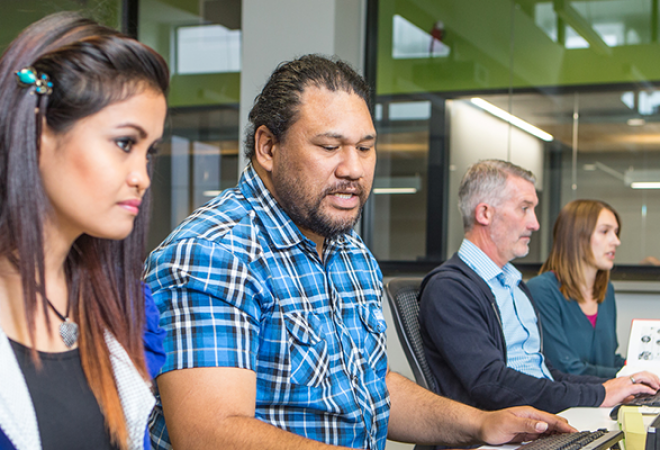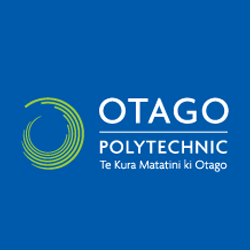
PROJECT
WBL – a new Learning Paradigm: The Learner, Employer and Facilitator Experience
Supporting learners,
Learner access and pathways,
Educational outcomes,
Workplace learning
Status
Completed: 2 May 2014
Project Details
A project completed in 2014, undertaken by Otago Polytechnic, to investigate and evaluate the impact of degree level Work Based Learning (WBL) in the New Zealand context and whether or not there is real benefit and value from WBL focused inquiry projects for both learner and the employer.
Aims:
The main aims of the project were to:
- investigate and evaluate the learner, employer/sponsor and facilitator experience of their involvement in Work Based Learning (WBL) degree programmes
- identify what, if any, benefits and value the learner’s WBL experience has added to the workplace
- identify what, if any, benefits and value the learner feels they have gained in terms of career enhancement, greater levels of skills knowledge and employability and a stronger sense of professional identify
- explore the implications for work-based learning processes, particularly focusing on learning agreement (contract) development and assessment.
Methodology:
The project used a mixed method approach involving:
- a review of the literature
- semi-structured interviews with participants, primarily by phone
- organising interview data into themes and used to extract issues, concerns and areas for improvement, modification and/or revision in the WBL approach used to date.
Team

Keith Tyler-Smith
Project Leader
Otago Polytechnic
Kris Bennett
Otago Polytechnic
Linda Kinneburgh
Otago Polytechnic
Phil Ker
Otago PolytechnicStatus
Funding
$22,850.00 (excl GST)
$10,000.00
Regional Hub Project Fund
$12,850.00
Otago Polytechnic
Key Findings
The key findings from the project included:
- The findings from this research are consistent with the findings for the WBL pilot, that this is a very effective form of higher education and that learners both enjoy the experience of the process, the relevancy of the learning to their workplace challenges and the professional and personal growth that accrues to them. The perspectives of those involved, learners, employers and facilitators eighteen months on from the previous research has provided a clear picture of the value and possibilities of the WBL approach.
- The success of the WBL initiative should also provide Otago Polytechnic with the encouragement and incentive to continue to grow this programme and invest in the PD of academic staff and in continued research to continue to improve the quality of the learning experience and refine the mode of delivery.
- The small numbers of employers willing to participate in this research is something of a disappointment. Despite this, the responses reported by the employers/sponsors clearly indicate that there is much to be gained by having their employees undertake degree level WBL programmes.
Key Recommendations
The project developed a set of recommendations in three parts:
Part One: Learner perspective
- Offer all WBL candidates the opportunity to attend a face-to-face group workshop in order to become appropriately inducted into the programme and oriented to the expectations, processes and specific nature of the WBL process.
- Develop a structured and pro-active process to facilitate an efficient and time delineated engagement with the learning agreement process.
- Assist learners to form informal study groups; in person where geographically co-located and virtually where geographically distributed.
- Provided learners with access to a moderated social media platform to fill their peer support need.
Part Two: Employer perspective
- Emphasise the need for employer engagement on the part of the institution and more effort focussed on giving full expression to the participatory relationship as part of the WBL partnership.
- Consider appointing a suitably qualified and experienced person who can engage with employers so that they properly understand the potential of WBL for their organisation as a full partner in the process.
- The appropriate involvement of employers in the WBL process is something that needs further work, both in the resourcing and practice of effective engagement of employers in the WBL programme to ensure they are enabled to take full advantage of the potential for their organisation and their employees.
Part Three: Facilitator perspective
- Establish a formal and properly focused and resources process of induction and preparation of new WBL facilitators.
- Provide regular, academically appropriate and practice-focused WBL PD activities for facilitators, academic mentors and assessors.
- Consider reviewing employment structures and conditions of facilitators with a view to enabling regular PD activity and facilitating peer sharing, informal learning and targeted coaching and mentoring opportunities.
- Establish protocols and policies to formally and actively include employer engagement in WBL programmes as a fundamental condition.
- Recognise and address the important issue of continuity of and ready access to appropriate academic leadership for WBL.
A research report prepared by Keith Tyler-Smith.
(PDF, 1.2 MB, 46-pages).
- 13 May 2014